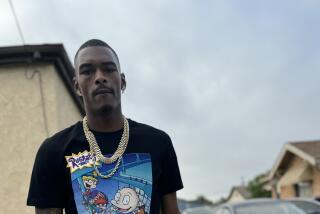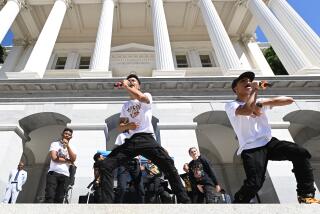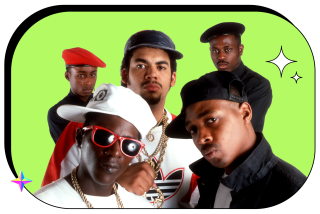Scott-Heron’s Take on the Roots of Rap
In the most famous song of his career, Gil Scott-Heron assumed the stance of a fiery street-corner agitator and proclaimed that “The Revolution Will Not Be Televised.”
But in light of more recent events, you could argue that Scott-Heron had it all wrong in that angrily satiric 1971 broadside, whose confrontational tone and spoken, machine-gun cadences presaged today’s politicized hard-core rap music.
Whether it has been a wall falling in Berlin, Boris Yeltsin clambering atop a tank in Moscow, or beatings and burnings in Los Angeles, the tumultuous events of our time have been brought to us live and in color.
But Scott-Heron, who plays tonight at Birdland West in Long Beach and Sunday at the Rhythm Cafe in Santa Ana, thinks the underlying argument of “The Revolution Will Not Be Televised” still holds. In watching those epochal changes on television, the 43-year-old jazz-R&B; performer said in a recent telephone interview, “we’ve seen the results take place. But what we were talking about (in the song) was that people had to change their minds first,” before events could unfold in a way that cameras might capture. “The revolution that takes place in your head, nobody will ever see that.”
“The Revolution Will Not Be Televised” was an underground hit back in the days of free-form FM radio, and it launched Scott-Heron on a career that has made him one of the most persistent and wide-ranging social critics in pop music.
Through the ‘70s and into the ‘80s, he could be heard on record inveighing against alcohol, heroin and angel dust as scourges of ghetto life, warning against the dangers of nuclear power, or, in “Whitey on the Moon,” ridiculing the space race.
But Scott-Heron also can point to less overtly political themes in his 17-album catalogue (only two best-of collections are now in print in the United States).
Scott-Heron’s influence is clear in the work of politicized rap groups like the Disposable Heroes of Hiphoprisy and Public Enemy, whose 1991 track about the impact of alcoholism in the black community, “1 Million Bottlebags,” updates and alludes to “The Bottle,” one of Scott-Heron’s best-known songs.
“I know some of those guys--Flavor and Chuck D. (of Public Enemy) and Michael Franti (of the Disposable Heroes),” Scott-Heron said, adding that “quite a few” rappers have acknowledged him as an influence. “It’s just something they do out of respect.”
But he doesn’t try to stake a claim as a godfather of rap. Instead, he sees rap as a natural extension of musical currents that existed before he came along.
The son of a librarian and a professional soccer player, Scott-Heron was born in Chicago and raised in Jackson, Tenn., and New York City. While he developed as a musician, he also was emerging in his early 20s as a writer. By the time “The Revolution Will Not Be Televised” had introduced him to a wide musical audience, he had published a novel, “The Vulture,” and a book of poetry.
Through the early and mid-’70s, Scott-Heron divided time between music, writing and teaching. After earning a master’s degree at Johns Hopkins University, he taught creative writing at the University of the District of Columbia. It wasn’t until 1976, after he had graduated to a deal with Arista Records, that Scott-Heron stopped teaching and pursued music full time.
A British label issued Scott-Heron’s most recent album, a 1990 double-CD release, “Live Somewhere in Europe.”
More to Read
The biggest entertainment stories
Get our big stories about Hollywood, film, television, music, arts, culture and more right in your inbox as soon as they publish.
You may occasionally receive promotional content from the Los Angeles Times.











